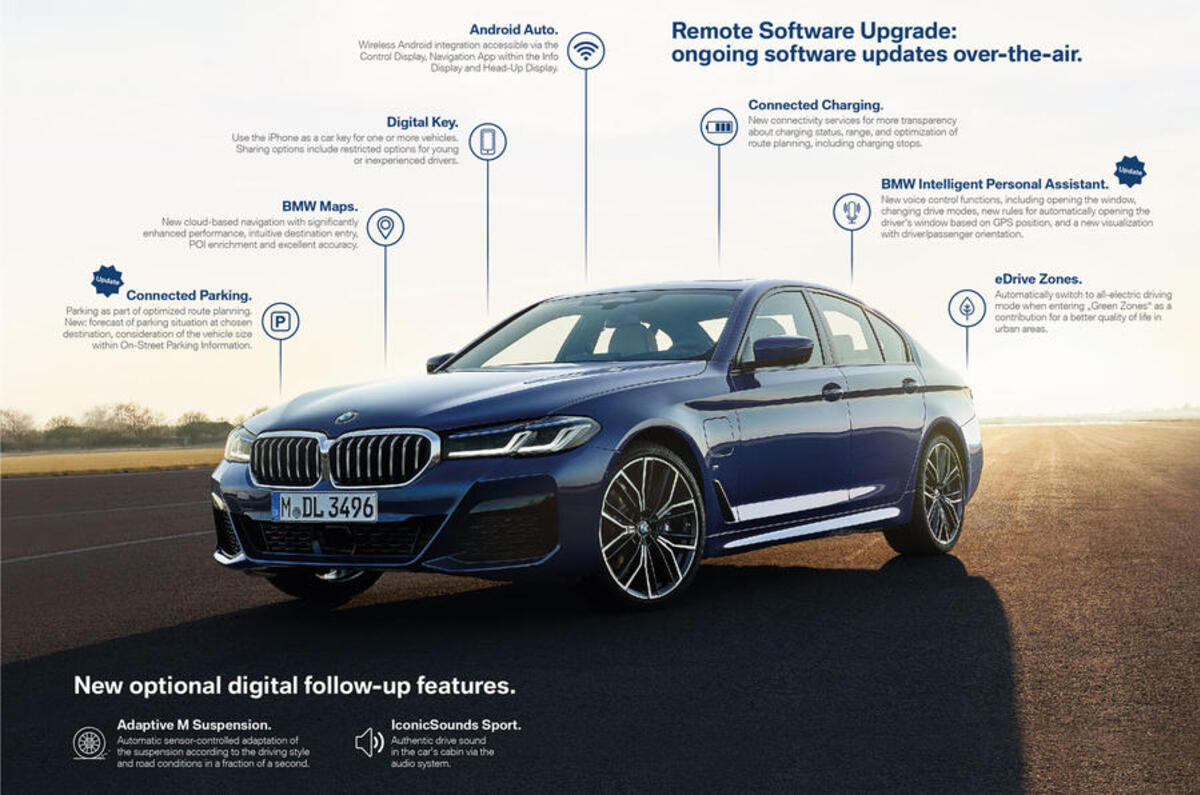In BMW's announcement of a wide-reaching new connected car software rollout yesterday, a small nugget of information became a big talking point: the brand will now use a subscription-based scheme for car options.
Essentially, what this means is that your BMW will now be sold with optional software and hardware already installed, but not switched on. Users can then log on to the ConnectedDrive Store and 'activate' specific features, such as high beam assist and active cruise control, for a flat fee or a monthly subscription.
High beam assist is a one-off £160 add-on, for example, while you can now trial various infotainment-based online services for £1 for the first month. But more hardware-based features, such as adaptive suspension and even heated seats, are set to move to this payment approach.
Of course, this provoked a rather visceral reaction on social media, and I can understand why. There is already industry concern over the propensity for people to tie themselves into car finance deals they can't necessarily afford, and adding monthly payments for options would make this ever more acute.
But maybe we should calm down a bit. Firstly, this isn't really new: Tesla confirmed earlier this year it would offer its Full Self Driving package as a subscription service to little uproar. And BMW has tried similar before, U-turning on its decision to charge Apple CarPlay users £85 a year for access after it was widely criticised. Maybe the same will happen here.
For purely software-based add-ons, the idea does make sense, though. We've known for years that many cars come with pre-installed wiring and features that essentially just require an ECU flash to activate them. It's often cheaper for manufacturers to simply install the wiring to every car rather than have different looms and production processes for each car going along the line. I can see the logic of, for example, paying to use active cruise just for a month if you have a big road trip coming up, too.
BMW says this makes sense because the take-up for features such as active cruise isn't all that high. Fair enough, but there are many hurdles it will have to jump before this can become a more widespread reality.
For example, is BMW really going to install a heavy, complex seat heating system in every car - even ones in warm climates where they're unlikely to have much subscription take-up - in the vague hope that they recoup the cost somewhere down the line? It also seems open to abuse: software hackers would be straight on the case working out how to bypass the charges.






Join the debate
Add your comment
Interesting
Love to see what people actually would pay for, if you could really specify what you needed month to month. Everything new in a showroom sounds brilliant, until 3 months later you decide either it's useless, annoying or unused.
Got a feeling it won't work like that though. Imagine them developing a device that tells you where to go how fast to drive, ideal temperature, grades your driving skill, and gives you a full breakdown of preferred choices of model and colour of your next vehicle , as well as your preferred radio station and choice of shop.
Delete wife mode.
Having to enter your credit card to activate the airbag
I can imagine just as heading uncontrollably towards a tree having to go through all the menus to enter payment details for airbags and possibly even brakes....
Alternatively
Why not charge £1,000 flat fee to have all these features?
The cost to BMW is zero and the additional take up would be large, thus making them more money.
It would also probably improve their sales and the residuals of used cars.
BMW
If only it were that simple, every business iss out to make money, that's obvious, but, you can go as far back as you like about car culture and what sells is premium, believing you've got a better car because it has more options than your friends car, believing you've got a better car than the poverty spec base model, who do you think perpetuated this idea?, yes, the marketing people, making us think we needed these options, so, yes, your idea of stick all the options on for a flat rate of a grand sounds good, but, it won't rake in as much as dangling the Carrot that you'll be paying for what you want, everything is costed out over the whole product, they're not giving it away cheaply.